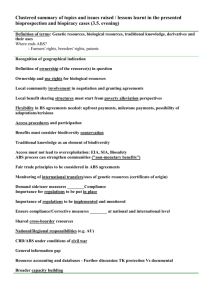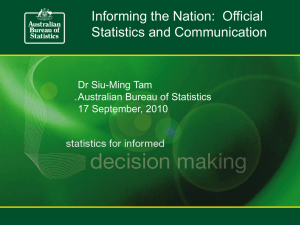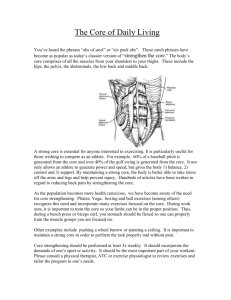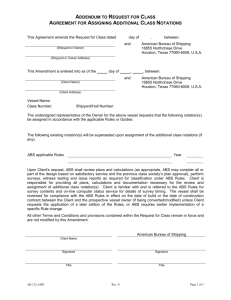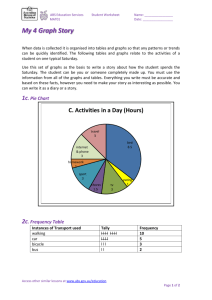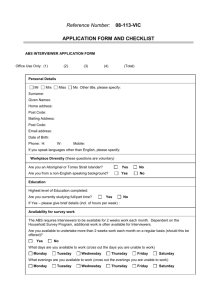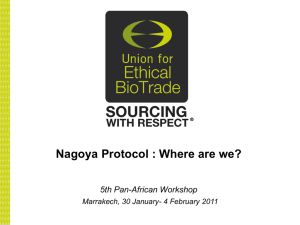Papua New Guinea
advertisement
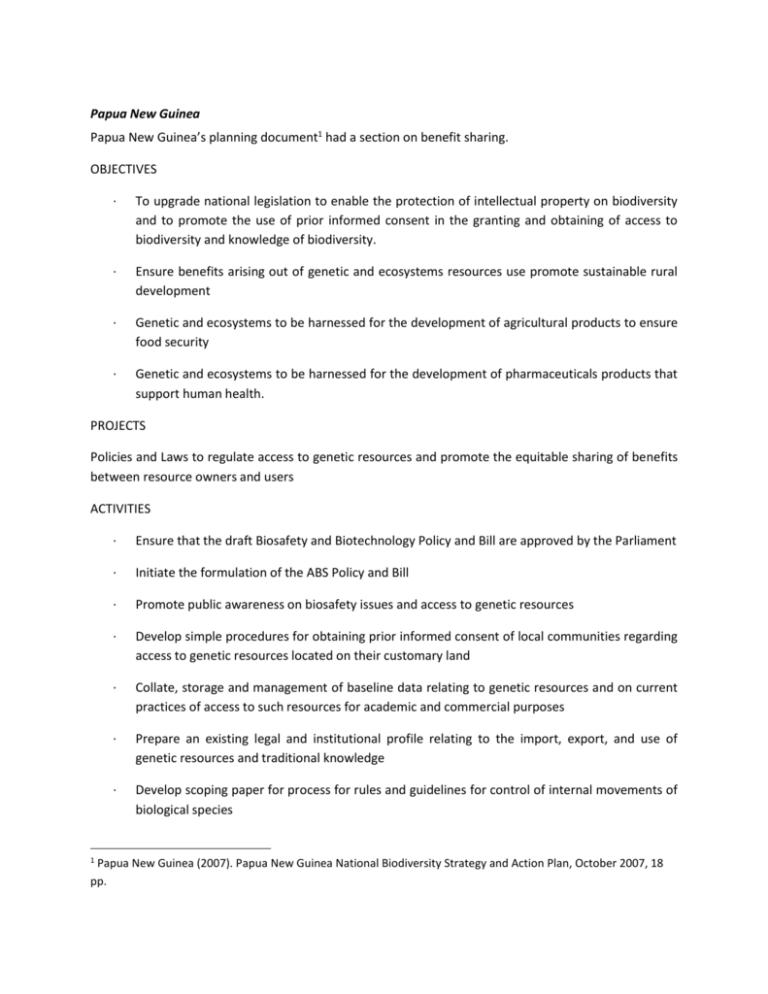
Papua New Guinea Papua New Guinea’s planning document1 had a section on benefit sharing. OBJECTIVES · To upgrade national legislation to enable the protection of intellectual property on biodiversity and to promote the use of prior informed consent in the granting and obtaining of access to biodiversity and knowledge of biodiversity. · Ensure benefits arising out of genetic and ecosystems resources use promote sustainable rural development · Genetic and ecosystems to be harnessed for the development of agricultural products to ensure food security · Genetic and ecosystems to be harnessed for the development of pharmaceuticals products that support human health. PROJECTS Policies and Laws to regulate access to genetic resources and promote the equitable sharing of benefits between resource owners and users ACTIVITIES 1 · Ensure that the draft Biosafety and Biotechnology Policy and Bill are approved by the Parliament · Initiate the formulation of the ABS Policy and Bill · Promote public awareness on biosafety issues and access to genetic resources · Develop simple procedures for obtaining prior informed consent of local communities regarding access to genetic resources located on their customary land · Collate, storage and management of baseline data relating to genetic resources and on current practices of access to such resources for academic and commercial purposes · Prepare an existing legal and institutional profile relating to the import, export, and use of genetic resources and traditional knowledge · Develop scoping paper for process for rules and guidelines for control of internal movements of biological species Papua New Guinea (2007). Papua New Guinea National Biodiversity Strategy and Action Plan, October 2007, 18 pp. · Development of rules for the control of internal movements of alien/invasive species Papua New Guinea’s national report2 indicated that IPO – trade related patents do not cover biological material. Continue to exchange material through International Material Transfer Agreements. NARIs – MOUs and MOA – work well- joint publication. PINBIO funding of PGR information management system (data Base ) for NARI. Bill in progress. A study on Access and Benefit Sharing (ABS) – Policy and Legal implications for Papua New Guinea carried out by E.Kwa in 2006, found that that; · there is no single national, provincial or local policy on ABS. · there is no existing law on ABS. · no attempts have been made by the government previously to deal comprehensively with ABS. Although there are one or two institutions that have made some attempts to address ABS their focus is limited to these institutions. Also there are snippets of ABS spread widely in the legal system. The absence of a national ABS framework is however apparent and the need to develop one is obvious. However, designing the ‘best’ ABS framework in a country such as PNG with complex and intricate cultural, social and political systems is not an easy task. The present work serves as a guide to policy and law makers in fashioning an appropriate ABS framework. The document provides an indepth analysis of the socio-cultural aspects of ABS; international aspects of ABS; the relevant policy and legal framework associated with ABS in PNG; research and development and ABS; and intellectual property rights aspects of ABS. The team recommends that: a national ABS Policy be developed immediately; and an ABS Bill be formulated and enacted soon. 2 Papua New Guinea (2010). Papua New Guinea’s Fourth National Report to the Convention on Biological Diversity, 86 pp. 2
